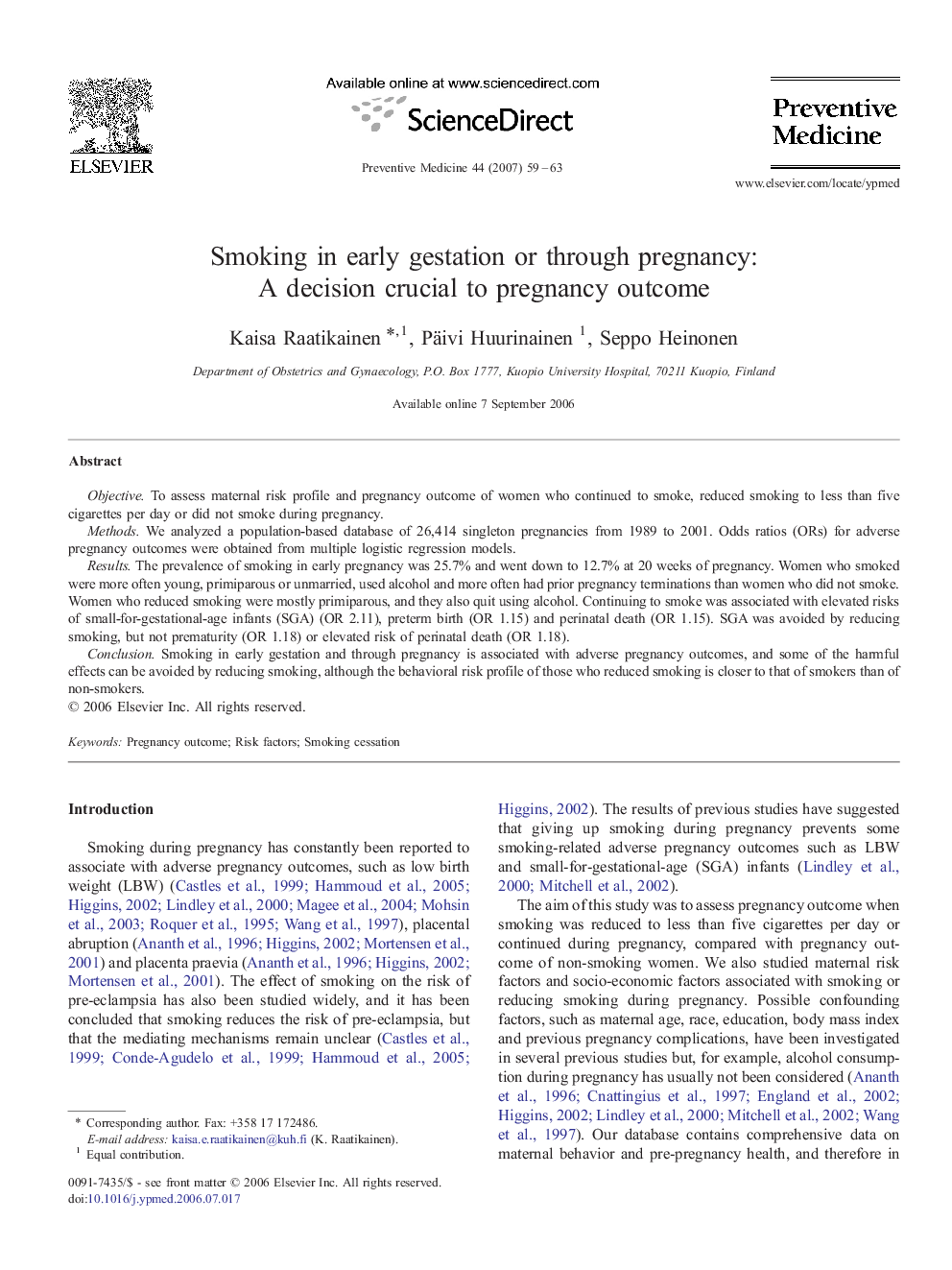| Article ID | Journal | Published Year | Pages | File Type |
|---|---|---|---|---|
| 3102140 | Preventive Medicine | 2007 | 5 Pages |
Objective.To assess maternal risk profile and pregnancy outcome of women who continued to smoke, reduced smoking to less than five cigarettes per day or did not smoke during pregnancy.Methods.We analyzed a population-based database of 26,414 singleton pregnancies from 1989 to 2001. Odds ratios (ORs) for adverse pregnancy outcomes were obtained from multiple logistic regression models.Results.The prevalence of smoking in early pregnancy was 25.7% and went down to 12.7% at 20 weeks of pregnancy. Women who smoked were more often young, primiparous or unmarried, used alcohol and more often had prior pregnancy terminations than women who did not smoke. Women who reduced smoking were mostly primiparous, and they also quit using alcohol. Continuing to smoke was associated with elevated risks of small-for-gestational-age infants (SGA) (OR 2.11), preterm birth (OR 1.15) and perinatal death (OR 1.15). SGA was avoided by reducing smoking, but not prematurity (OR 1.18) or elevated risk of perinatal death (OR 1.18).Conclusion.Smoking in early gestation and through pregnancy is associated with adverse pregnancy outcomes, and some of the harmful effects can be avoided by reducing smoking, although the behavioral risk profile of those who reduced smoking is closer to that of smokers than of non-smokers.
